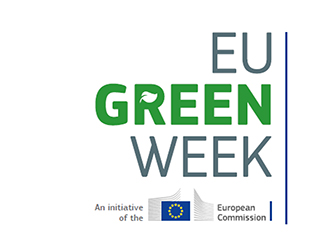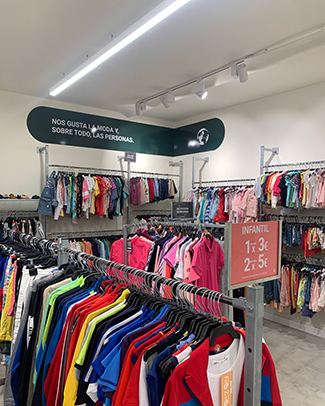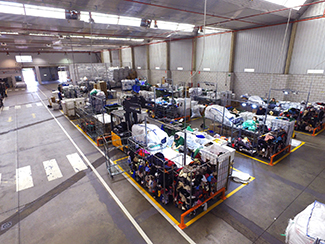consent_cookie
Duración: 1 year
Stores the user's cookie consent state
07-06-2023
European Union (EU) Green Week 2023 focuses on environmental protection, conserving biodiversity, circular economy and need for zero carbon emission. The event led by European Commission will begin on 3 June and end on 11 June 2023. We will take the opportunity to highlight Humana People to People second-hand clothes collection and sales in Europe, the USA and the global South.
EU Green Week 2023 raises awareness on the importance of protecting the environment and promoting sustainable lifestyles. The EU Strategy on Sustainable and Circular Textiles seeks to reduce the environmental impact of the textile industry, promote clothing reuse, and limit overconsumption of mass-produced clothing. On 6 and 7 June there will be an EU Green Week Conference about the latest developments on EU environmental policies and efforts to save the planet. EU will celebrate the progress made and make a call to action in protecting the environment. Influential decision makers, leading environmentalists, civil society and other stakeholders get an opportunity to meet and engage in environmental matters.
A steady growing awakening to realise the damaging social and environmental impacts of ‘fast fashion,’ leads many to demand sustainable alternatives. 14% of EU citizens purchased used clothes in 2020. Globally, projections for Compound Annual Growth Rate for used clothes in the next decade tell it will increase to 14.8% from 7.1% (2017 and 2021). Second-hand clothes industry can create up to 120,000 new green jobs if all discarded clothing in Europe were collected and sorted. This is an increased demand for skilled professionals managing, sorting, processing and other indirect labour services supporting environment protection.
Giving clothes a longer lifecycle can help offset negative environmental impact. Our work is guided by the European Union’s Waste Hierarchy, where after prevention of waste, reuse is best as it gives greater environmental benefits than recycling, which in turn is better than energy recovery or putting in landfills.
According to the World Bank (2019), the textile industry produces 10% of the world’s carbon emission, more than international flights and shipping combined. It’s also the second largest consumer of the world’s water supply. By buying one kg of second-hand clothes (about five items) instead of buying new clothes, one is contributing to the reduction of carbon emission equivalent to 6.1 kg. Thus, reuse of clothes and shoes is very important for the environment and an important contribution towards fighting global warming and climate change.
For more thant 40 years, Humana People to People organisations have worked with collection and reuse of textiles as a core income generating activity for the network. Since our beginnings, the activity has been an opportunity to ensure the financial sustainability of our development work in sub-Saharan Africa, Asia, Central and South America. Today, it has expanded into a concerted effort towards environmental protection; reducing carbon emissions and waste, as well as improving natural resource efficiency through the circular economy model.
In 2022, members of Humana People to People in Europe and the USA collected 127,000 tons of second-hand clothes. With this, 770,000 tonnes of CO2 emissions have been saved. We strive to maximize the reuse of collected textiles thus we have in place a detailed sorting and distribution system supporting different parts of the world, which extends the supply of used clothes to the widest possible users across the globe. Through the long-term relationships built across the sector, members pf Humana People to People are able to ensure a high level of control and transparency throughout the supply chain.
As a frontrunner of the circular economy in used textile, Humana People to People members developed a Code of Ethics for the growing second-hand clothes industry. Approximately 11,300 jobs were created in logistics, sorting and sales, either as formal employment or in the informal sector linked to the trade and handling.
To facilitate changing consumption patterns in developed countries, members operate 553 Humana shops in 22 countries in Europe and the USA making it possible for 11.4 million people in the northern hemisphere to buy quality and durable second-hand clothes in the year 2022. In Africa and Belize there were 164 wholesale and retail shops which gave an opportunity to 19 million people to buy second-hand clothes in 2022.
The Humana People to People second-hand clothes business creates jobs. In Europe, the Middle East, and the the USA, 6 100 people work in collections, sorting centres and shops. They take good care of the collected clothes and make sure each item is put to the best possible use; reuse and recycling.


